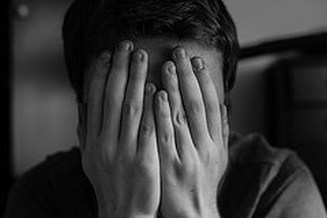- Persistent sad, anxious, or "empty" feelings
- Feelings of hopelessness or pessimism
- Feelings of guilt, worthlessness, or helplessness
- Irritability, anger, or hostility
- Restlessness or agitation
- Loss of interest in activities or hobbies once pleasurable
- Fatigue and decreased energy
- Difficulty concentrating, remembering details, and making decisions
- Insomnia, early-morning wakefulness, or excessive sleeping
- Overeating, or appetite loss
- Thoughts of suicide, suicide attempts
- Aches or pains, headaches, cramps, or digestive problems that do not ease even with treatment.
- Tearful or frequent crying
- Withdrawal from friends or family
- Lack of enthusiasm or motivation
"Only in the past two decades has depression in children been taken very seriously. The depressed child may pretend to be sick, refuse to go to school, cling to a parent, or worry that the parent may die. Older children may sulk, get into trouble at school, be negative, grouchy, and feel misunderstood.
Because normal behaviors vary from one childhood stage to another, it can be difficult to tell whether a child is just going through a temporary 'phase' or is suffering from depression. Sometimes the parents become worried about how the child's behavior has changed, or a teacher mentions that 'your child doesn't seem to be himself.' In such a case, if a visit to the child's pediatrician rules out physical symptoms, the doctor will probably suggest that the child be evaluated, preferably by a psychiatrist who specializes in the treatment of children."
Depression can be so difficult to diagnose. Like any other mental illness it can have many signs and symptoms and not all are the same for each person. Watch out for these signs in your adolescent and seek help, like any illness depression is damaging if left untreated.

 RSS Feed
RSS Feed